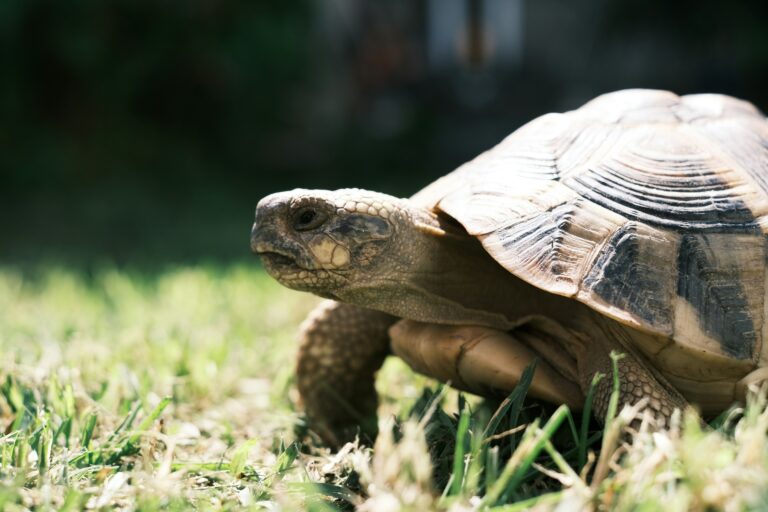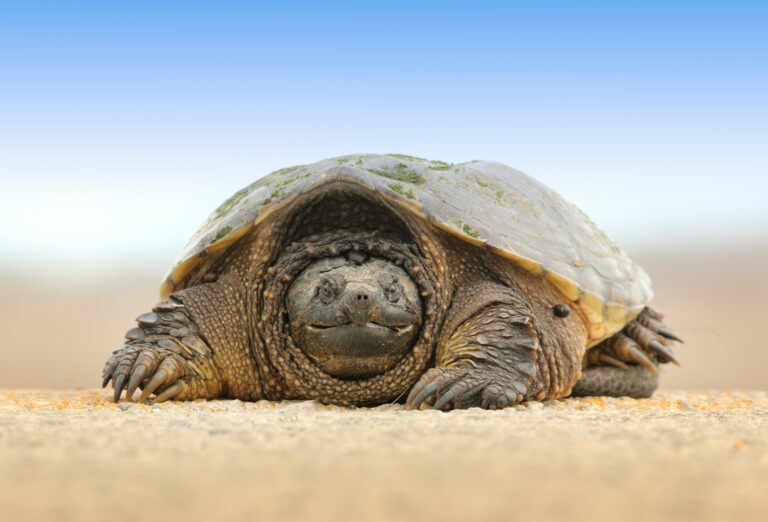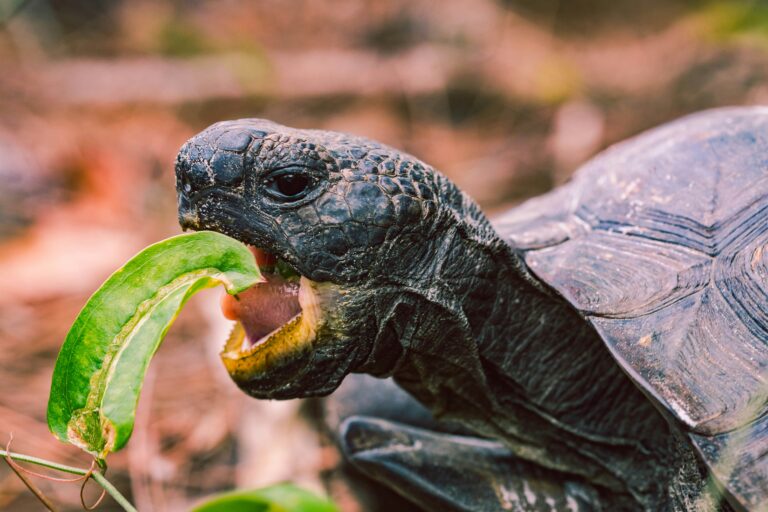Why is my Russian tortoise not eating? 10 reasons.

Russian tortoises are popular house pets because of their gregarious dispositions and voracious appetites. When a Russian tortoise refuses to eat, pet owners may become concerned. We’ll examine the many causes of a Russian tortoise’s appetite reduction in this extensive guide, along with helpful advice on how to effectively handle this problem.
To understand why a Russian tortoise stops eating, it’s important to first understand its regular eating behaviors. As herbivores, Russian tortoises mostly eat lush greens, vegetables, and sometimes fruits. They have a slow metabolism and may not consume a lot of food each day. A sudden and persistent reluctance to eat, however, calls for additional research.
Possible Causes of Appetite Loss:
Changes in the tortoise’s surroundings, such as a new cage, relocation, or changes in temperature or lighting, can cause stress and reduce their eating. To help your turtle feel safe, make sure the environment has enough room, temperature gradients, and hiding places.
Illness or Injury:
If a Russian tortoise has an underlying medical condition or has been injured, its appetite may decline. Respiratory infections, parasites, shell injuries, and metabolic bone disease are all prevalent health concerns that might interfere with appetite. See a reptile veterinarian for a complete assessment and suitable treatment if you suspect disease or damage.

Dental Problems:
A tortoise may find it hard or challenging to consume if it has dental problems, such as enlarged beaks or mouth injuries. Inspect your tortoise’s mouth for any abnormalities and, if required, see a reptile dentist.
Seasonal Variations:
Russian tortoises are susceptible to changes in the length of sunshine and temperature throughout the year. In colder months or during periods of low sunshine, tortoises can go into a state of reduced activity and hunger, which is similar to brumation, a kind of hibernation. Keep an eye on the surroundings and modify treatment as necessary to account for seasonal variations. Russian tortoises may have feeding preferences similar to humans. To find out your tortoise’s tastes and encourage eating, try feeding various kinds of fruits, vegetables, and leafy greens.
Handling Appetite Loss:
Maintain proper environmental conditions for tortoises, including temperature, humidity, lighting, and substrate. Reduce environmental stressors and disturbances to foster a sense of security.

Provide Diverse Options:
Offer a wide range of meal options, such as various leafy greens, vegetables, and occasionally fruits. Experiment with different presentation and texture options to pique your tortoise’s appetite. To keep your tortoise hydrated, provide new, clean water every day and immerse in shallow water to increase hunger.
Veterinary Evaluation: Consult a veterinarian right away if your Russian tortoise refuses food despite dietary suggestions and environmental modifications. Based on the underlying reason for appetite loss, a veterinarian specializing in reptiles can do a comprehensive examination, order diagnostic tests, and suggest the best course of action.
Health Concerns: A Russian tortoise’s lack of food may be a sign of underlying medical conditions such respiratory infections, parasites, or dental concerns. The health of the tortoise depends on the timely resolution of these issues with the assistance of a veterinarian specializing in reptiles.
Environmental Factors: A tortoise may become stressed and lose its appetite as a result of environmental changes, such as temperature swings or dim lighting. Promoting a healthy diet requires providing a secure and cozy environment.
Seasonal Variations: The activity and hunger of Russian tortoises can be influenced by seasonal variations, as they are susceptible to them. In winter, tortoises go into a state of brumation, which causes them to lose their appetite. The effects of seasonal fluctuations on appetite can be lessened by keeping an eye on environmental factors and modifying care as necessary.
Although losing one’s appetite in a Russian tortoise can be upsetting for pet owners, knowing what causes it will help you deal with the problem more successfully. You may help your tortoise’s health and well-being by monitoring environmental conditions, providing a diverse diet, staying hydrated, and getting veterinarian attention when necessary. Your Russian tortoise can recover its appetite and flourish once more with the right attention, perseverance, and patience.
Read More: What do Russian tortoise eat?